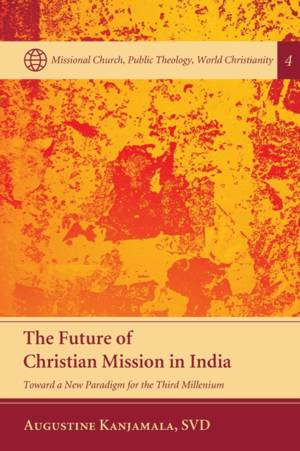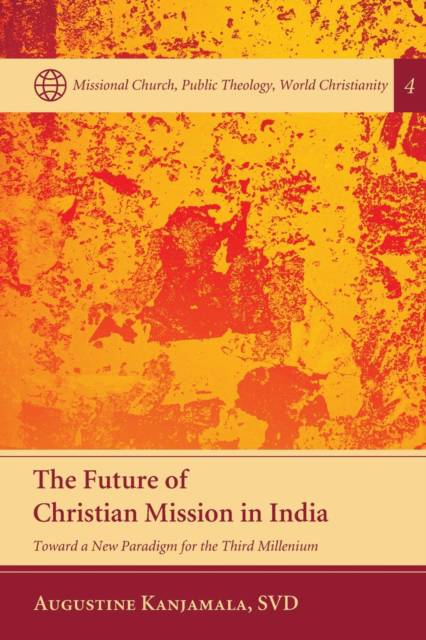
- Retrait gratuit dans votre magasin Club
- 7.000.000 titres dans notre catalogue
- Payer en toute sécurité
- Toujours un magasin près de chez vous
- Retrait gratuit dans votre magasin Club
- 7.000.000 titres dans notre catalogue
- Payer en toute sécurité
- Toujours un magasin près de chez vous
The Future of Christian Mission in India
Toward a New Paradigm for the Third Millennium
Augustine Svd Kanjamala
53,45 €
+ 106 points
Format
Description
Colonial missionaries, both Catholic and Protestant, arrived in India with the grandiose vision of converting the pagans because, like St. Peter (Acts 4:12) and most of the church fathers, they honestly believed that there is no salvation outside the church (extra ecclesiam nulla salus). At the end of the ""great Protestant century,"" however, Christians made up less than 3 percent of the population in India, and the hope of the missionary was nearly shattered. But if one looks at mission in India qualitatively rather than quantitatively, one sees a number of positive outcomes. Missionaries in India, particularly Protestant missionaries espousing the social gospel, in collaboration with a few British evangelical administrators, dared to challenge numerous social evils and even began to eradicate them. The scientific and liberal English education began to enlighten and transform the Indian mindset. Converts belonging to the upper caste, although small in number, laid the foundation stone of Indian theology and an inculturated church using Indian genius. The end of colonialism in India coincided with the painful death of colonial mission theology. Now, the power of the Word of God, extricated from political power, is slowly and peacefully gaining ground, like the mustard seed of the parable. A paradigm shift from the ecclesio-centric mission to missio Dei offers reason for further optimism. In short, the future of mission in India is as bright as the kingdom of God. In today's new context, theologians, despite objections from some quarters, are struggling to discover the Asian face of Jesus, disfigured by the Greco-Roman Church. And the missionary is challenged to become a living Bible that, undoubtedly, everyone will read.
Spécifications
Parties prenantes
- Auteur(s) :
- Editeur:
Contenu
- Nombre de pages :
- 422
- Langue:
- Anglais
- Collection :
- Tome:
- n° 4
Caractéristiques
- EAN:
- 9781620323151
- Date de parution :
- 21-08-14
- Format:
- Livre broché
- Format numérique:
- Trade paperback (VS)
- Dimensions :
- 152 mm x 229 mm
- Poids :
- 562 g







